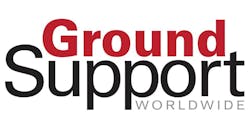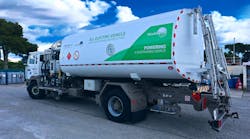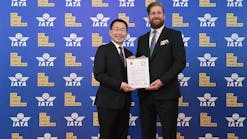How Aviation Stakeholders are Taking Steps to Comply with ReFuelEU Regulations
Recently, Atlas Air announced a partnership with renewable fuel producer Repsol to utilize sustainable aviation fuel (SAF) on its cargo flights to Spain.
According to a press release highlighting the agreement, Atlas Air has begun using SAF in all of its flights with its customer Inditex at Zaragoza Airport in Spain. Atlas Air officials say the agreement makes them the first cargo airline to regularly operate cargo flights in Spain with SAF.
“We are committed to contributing to the sustainability of the aviation sector and appreciate this opportunity to work with our valued partners at Inditex and Repsol,” Richard Broekman, CCO and head of sustainability for Atlas Air Worldwide, said. “It is critical for our sector to work together in driving wider adoption and availability of SAF, which ultimately will have a positive impact on our industry and the environment.”
The partnership between Atlas Air and Repsol in Spain carries additional significance because it helps the airline prepare for recently announced ReFuelEU aviation regulations.
The European Union (EU) has devised a sustainability plan, known as the Fit for 55 Package, to reduce greenhouse gas emissions and set climate neutrality goals. As part of this package, aviation goals are outlined in the ReFuelEU initiative to encourage the adoption of SAF. These targets include requirements for airports and fuel suppliers to use sustainable fuels.
ReFuelEU requires at least 2 percent of aviation fuels be sustainable starting in 2025. That requirement increases to 6 percent in 2030 and continues to increase every five years until 2050 when a 70 percent green fuel requirement takes effect.
According to the European Parliament’s new release, SAF includes “synthetic fuels, certain biofuels produced from agricultural or forestry residues, algae, bio-waste, used cooking oil or certain animal fats. Recycled jet fuels produced from waste gases and waste plastic are also considered ‘green.’”
“This is a tremendous step towards the decarbonization of aviation. It is now time for EU governments to implement the new rules and support the industry to ensure the cost-effective deployment of sustainable aviation fuels across Europe as well as meeting EU targets. There is no time to lose,” José Ramón Bauzá Díaz, Renew Europe Group member and parliament rapporteur, said. “In a complex and competitive world, I fully believe that ReFuelEU is a great opportunity to position the European Union as a global leader in the production and use of SAF.”
In addition to the new regulations, an EU label will be created for airlines to highlight its flights and help promote decarbonization efforts taking place in aviation.










